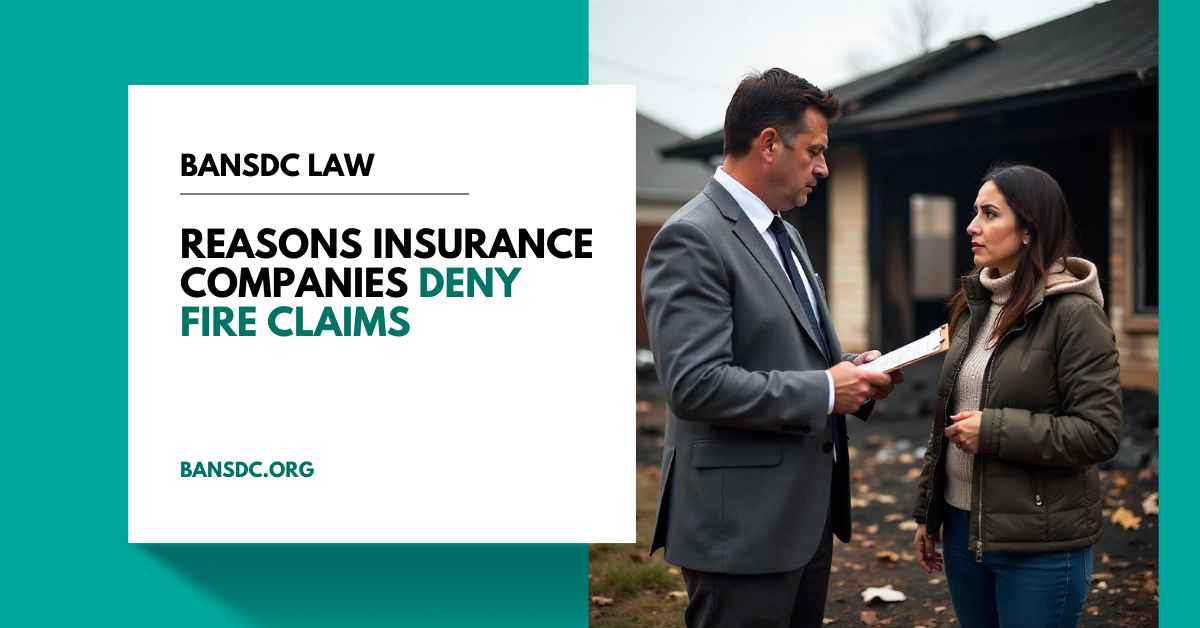Compassionate Support After a Fire‑Claim Denial
A devastating fire is traumatic enough; learning that an insurer has rejected the claim can feel like a second disaster. Texas homeowners, tenants, and business owners frequently turn to experienced fire‑claim denial attorneys for guidance when promised coverage suddenly disappears. With decades of combined practice in property‑insurance disputes, these lawyers have helped families statewide—from ranches along I‑10 to high‑rise condos off I‑35—secure fair payouts and start rebuilding.
Texas Fire Risks and Insurance Challenges
Texas recorded 12,571 wildfires in 2022, more than any other state. Lightning strikes in the Panhandle, aging electrical systems in urban centers, and drought‑fueled grassfires across Central Texas all contribute to high claim volumes. Although homeowners’ policies typically cover fire damage, insurers often scrutinize losses to limit payouts. Understanding common denial tactics is critical to protecting your rights.
Common Reasons Insurers Deny Fire Claims
1. Insufficient or Inadequate Coverage
Coverage limits that lag behind current construction costs leave a gap. When total‑loss damages exceed the limit—or optional extended replacement coverage was never purchased—the insurer will refuse payment for the shortfall.
2. Policy Exclusions Hidden in Fine Print
Standard policies exclude certain scenarios: intentional acts (arson), “acts of war,” fires caused by gross negligence, and in some cases, secondary perils such as mudslides that follow wildfire suppression.
3. Non‑Payment or Lapse of Premiums
Missed premium payments trigger cancellation. After a valid lapse, the carrier can lawfully deny any claim, regardless of fault.
4. Late Reporting of the Claim
Policies require prompt notice. Waiting more than a few days gives insurers grounds to argue that evidence is lost and their investigation prejudiced.
5. Lack of Documentation or Evidence
Without receipts, photos, or inventory records, an adjuster may label losses “unsubstantiated.” A cloud‑based home inventory can avert this pitfall.
6. Suspicion of Arson or Fraud
Investigators look for accelerants or inconsistent statements. Even unproven suspicions can stall claims for months or lead to outright denial.
7. Alleged Negligence or Code Violations
If faulty wiring, missing smoke detectors, or unpermitted renovations contributed to the blaze, the carrier may reduce or refuse payment, calling the damage “preventable.”
8. Pre‑Existing or Unrelated Damage
Insurers may blame prior deterioration—such as an old roof or previous smoke damage—rather than the recent fire, excluding that portion of the claim.
9. Disputed Value or Underassessment
Instead of denying outright, a carrier may underpay by undervaluing repairs or personal property. This “partial denial” still leaves policyholders thousands short.
Some reasons are legitimate; others fall into gray areas or bad‑faith tactics. If a denial seems unfair, professional legal assistance can make the difference.
Uncommon and Surprising Denial Tactics
- Ambiguous Policy Language – Undefined terms (“residential” vs. “commercial use”) can be interpreted against policyholders until challenged.
- Rare Exclusions – Clauses denying losses caused by government action or earth movement (e.g., a fire‑break bulldoze order or earthquake‑triggered gas‑line rupture) occasionally appear in specialty policies.
- Electrical Fires Labeled “Wear and Tear” – Carriers may claim aging aluminum wiring—not a sudden accidental spark—caused the fire, denying payment for rewiring.
- Failure to Cooperate or Examination Under Oath (EUO) – Missing a scheduled EUO or hesitating to provide requested records can trigger a “lack of cooperation” denial.
These less‑common tactics demonstrate why knowledgeable counsel is invaluable; attorneys recognize weak justifications and force insurers to honor the contract.
Frequently Asked Questions
Does homeowners insurance cover wildfire damage in Texas?
Yes. Wildfire is a named peril in most Texas policies. Insurers may still contest claims if multiple homes are destroyed or if property owners failed to maintain defensible space.
What if lightning caused the fire—am I covered?
Generally, yes. Lightning‑caused fires fall under standard fire coverage. Insurers may dispute unrelated pre‑existing roof damage, so document conditions promptly.
My home was vacant when it burned. Can the insurer deny the claim?
Possibly. Many policies void or limit coverage after 30‑60 days of vacancy unless a vacancy endorsement is in place.
How often are denials in good faith versus bad faith?
After large‑scale Texas wildfires, anecdotal evidence shows a spike in underpayments and bad‑faith denials as carriers manage extensive liabilities.
What steps should I take after a denial?
- Review the Denial Letter – Identify each stated reason.
- Request Clarification – Document all communications.
- Gather Additional Evidence – Independent fire‑investigator reports, contractor estimates, and state fire‑marshal findings can rebut weak denials.
- File an Internal Appeal – Respond in writing within policy deadlines.
- Seek Legal Advice – An attorney can evaluate the claim and negotiate or litigate if necessary.
- Complain to the Texas Department of Insurance – Regulators investigate unfair practices.
Can policyholders sue an insurer for wrongful denial?
Yes. A bad‑faith or breach‑of‑contract action under Texas Insurance Code Chapter 541 can recover the claim amount, additional damages, and attorney’s fees.
How do fire‑claim denial attorneys help?
- Case Evaluation – Determine whether the insurer’s stance holds water.
- Expert Collaboration – Independent investigators and appraisers strengthen the claim.
- Communication Management – Attorneys handle all interactions, preventing low‑ball tactics.
- Negotiation or Litigation – Well‑founded lawsuits often prompt fair settlements.
- Contingency Representation – No fee unless money is recovered, aligning attorney and client interests.
Conclusion
Denied fire insurance claims are not the end of the road. Whether you live in Houston, Dallas, or a small Hill Country town, resources exist to challenge an unfair decision. By understanding common and uncommon denial tactics, documenting losses thoroughly, and consulting knowledgeable professionals when necessary, Texas residents can protect their rights and secure the coverage they paid for.
Need help? Consult an experienced Texas fire‑claim denial attorney for a free case review. Many work on contingency, so you pay nothing unless your claim is resolved successfully.

